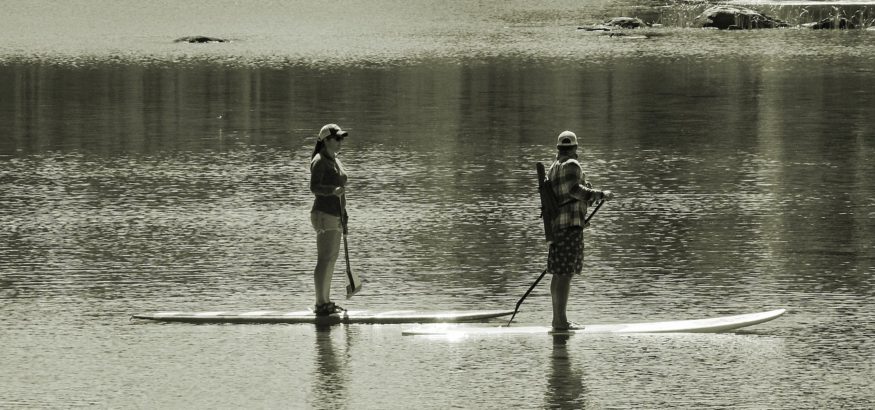Paddleboard Research Project
I have completed my research project into the common patterns of Delayed Onset Muscle Soreness (DOMS) and higher intensity paddle boarding. We all get DOMS. It’s not an injury, or a sign of weakness, or age, or fragility. It is a physiological and structural muscular response to an overload effort that has take that muscle group beyond it’s current threshold capacity. You get more of this sciencey talk in the research write up so be sure to click it. Seriously though DOMS is considered as part of the adaptive response to high intensity muscular effort and overload… and as athletes we are always chasing a bit of adaptation.
If you are a SUP boarder you’ll know what happens if you get caught out by a tide, or a headwind picks up, or the swell is just too sweet to miss another hour… or you make the fatal mistake of allowing my mate Admiral Andy to take you on a “gentle coastal loop”. You push yourself into a higher intensity, higher effort, or higher volume paddling session. And the next day certain muscle groups may remind you. I wanted to see if there were any trends across male and female boarders within these DOMS affected muscle groups. And I wanted to consider what relevance does this have when regarding paddle boarding as a recommended activity for fitness and strength training.
You can read all about it by clicking here: SUP DOMS research
As an added bonus I have recently completed a research review of the health benefits and fitness components associated with Stand Up Paddle Boarding. You may be thinking “what’s the point”, or you may be thinking “it’s gotta be good for you”. But there is a point. SUP is a fast growing water sport that is accessible, inclusive and cost efficient. If all these folks are going to take it up, or more importantly, are being encouraged to take it up, then we need to know what it can contribute to their health and fitness… not just make guesses. Regular, vigorous, outdoor exercise has a powerfully effective role to play in maintaining, or improving, our health. Could SUP be an accepted and recommended choice? I ask because we need these choices if we are going to promote physical activity and diversity. There is not really much research out there in this area, and I wanted to gather together some of the most useful papers and conclusions in one thoroughly readable review. It’s science again, but it’s more lighthearted. You can access a PDF of the completed paper HERE.


Comments are closed.